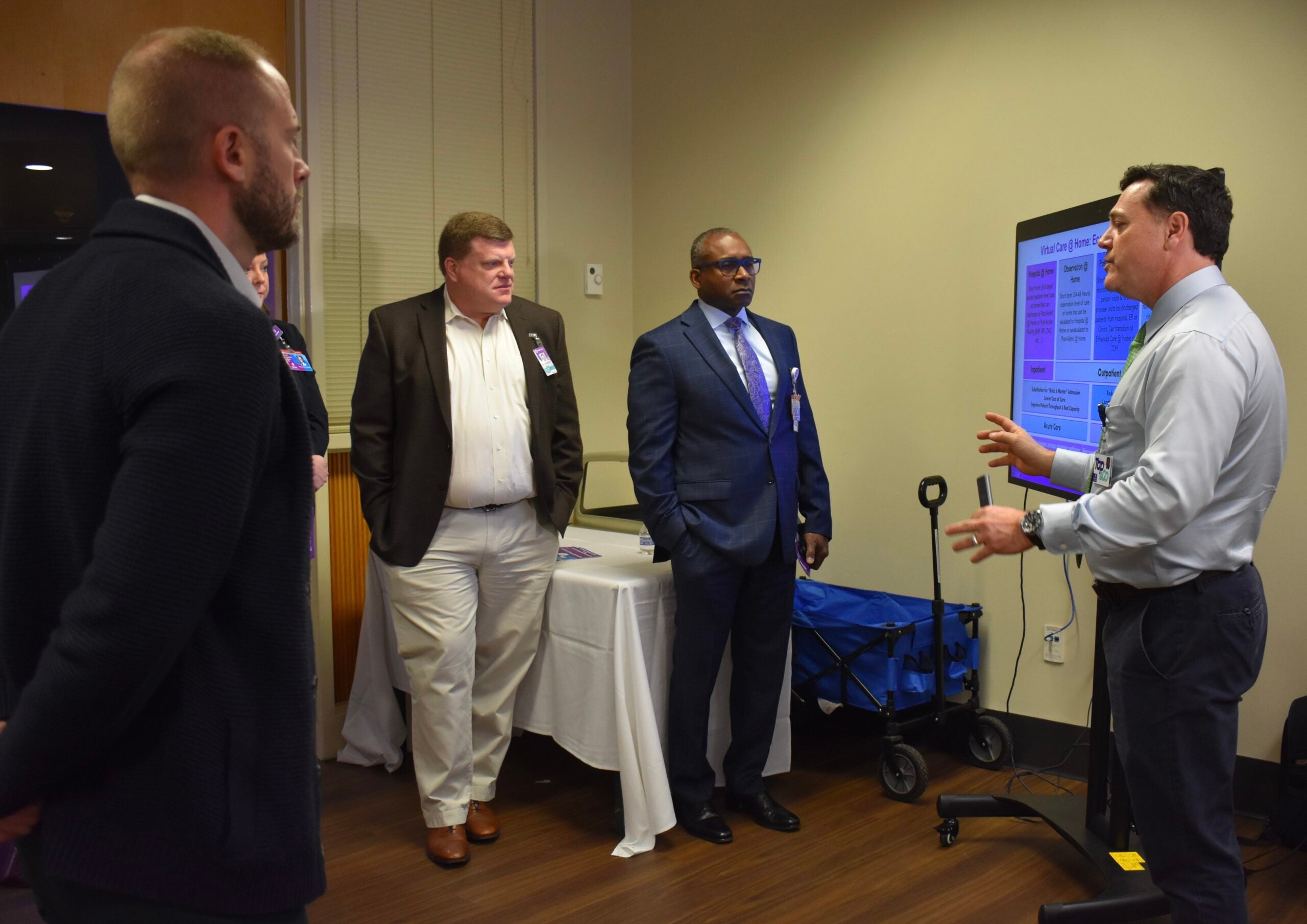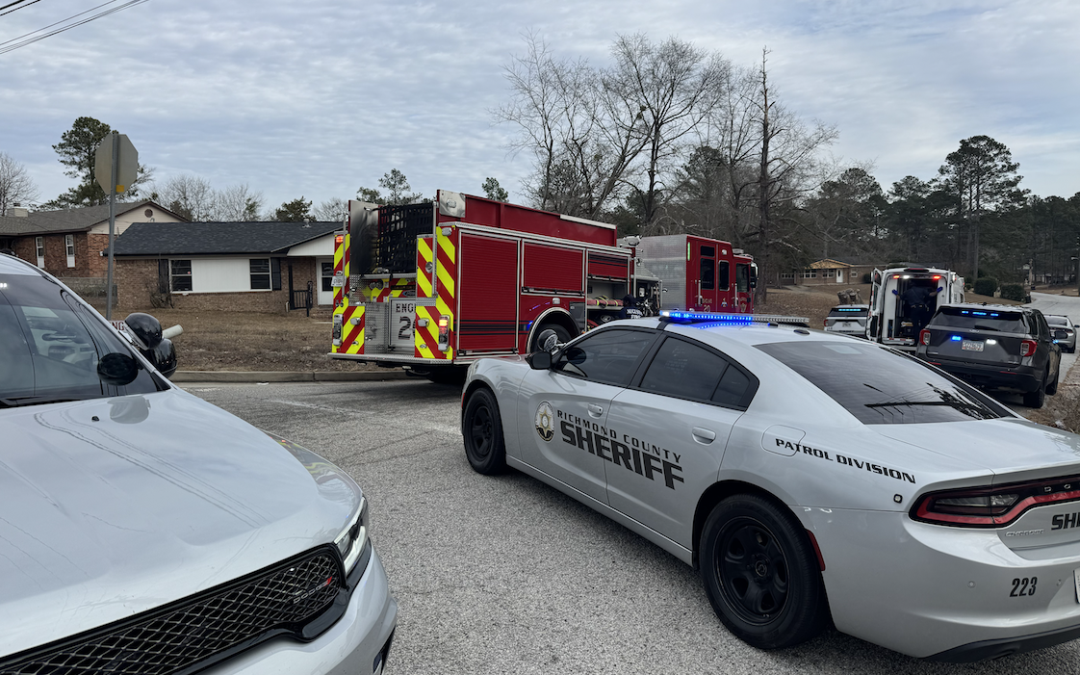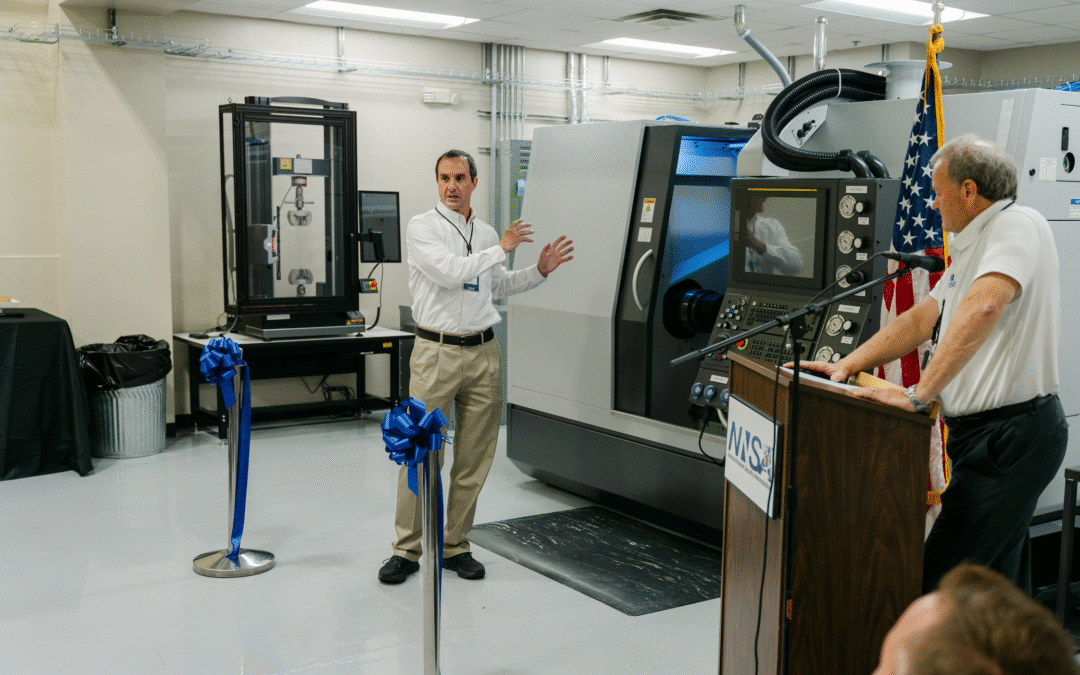Wellstar MCG Health showcased the future of healthcare with immersive demonstrations on Tuesday, March 26, for health clinicians and physicians to get familiarized with the patient perspective.
“We started a program in February of 2021 targeted to get patients who had COVID-19 out of the hospital a little early and assist them with a better transition at home,” said Lauren Hopkins, assistant vice president of Virtual Care and Community Engagement at Wellstar MCG Health. “A lot of times for patients, once they leave the hospital, they might not fully understand their discharge summary of what they need to do next.”
Now, thanks to $1 million in federal funding, secured by the U.S. Rep. Buddy Carter, Augusta University’s Medical College of Georgia announced plans to expand the Telehealth Center by increasing their number of trained medical professionals to serve patients throughout the state.
MORE: Recreation audit would help new director, other Augusta departments, commissioner says
“The MCG Center for Telehealth will offer comprehensive connectivity dedicated to providing health care services to all patients, regardless of their location in the state,” AU President Brooks Keel stated in a press release. “Among many other benefits, this project will keep rural patients closer to home, where their families can support them, while also creating a strong network of support for rural hospitals.”
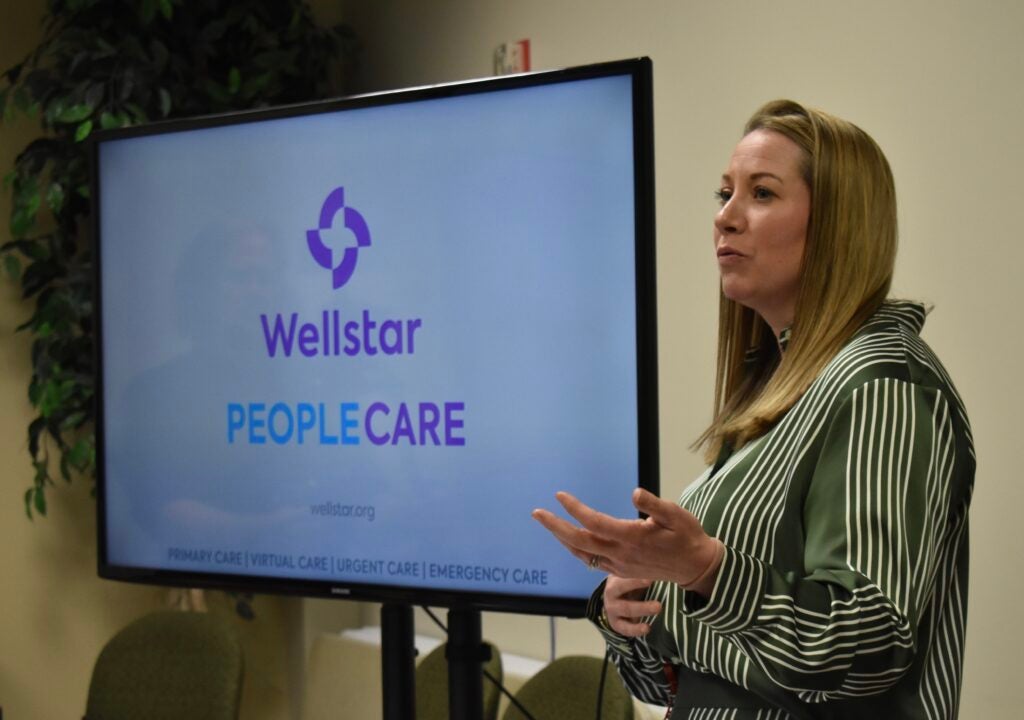
Showcasing remote heart monitors, blood pressure cuffs, spirometers and more specialized tools, speakers during immersive demonstrations said Telehealth Center translates into the same innovative care, for less cost, while freeing up more resources for those needing complex care.
“The Medical College of Georgia has shown great commitment to the continued advancement of telehealth in our communities,” said Rep. Carter.
To particularly target those in rural areas and underserved areas of the state, the center will also train future physicians and prepare them to provide telehealth-related patient care through various programs.
By utilizing systems and tools with long battery life, Hopkins said the center will seek to bridge gaps by also educating patients on how to monitor their own health and take a more proactive role in preventing condition deterioration.
“We’ll also actively monitor those patients for up to 30 days following their discharge,” Hopkins said. “So they have the full comprehensive care team taking care of them to help reduce readmission and keep them out of the hospital.”
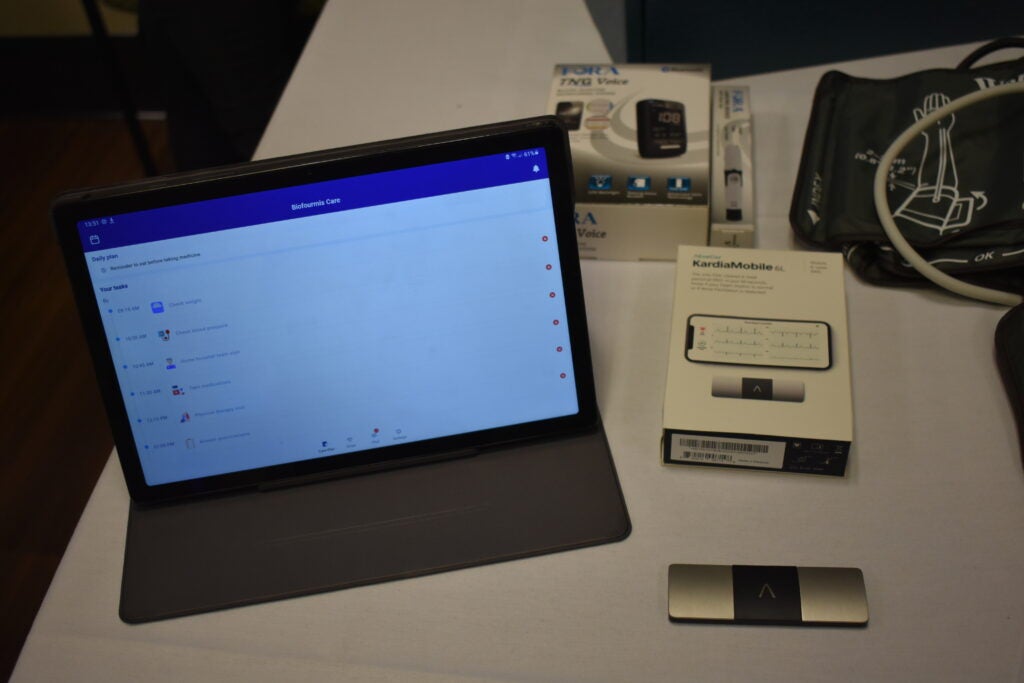
According to David Hess, dean of the Medical College of Georgia, MCG has focused on telehealth for many years making the expansion a natural progression for the foundation.
“The Medical College of Georgia has made telehealth a priority for more than 20 years, and the new Center for Telehealth will serve as the next step in the future of student education,” said Hess.
Virtual Care at Home encompasses four programs that lower the intensity of care, including: Hospital at Home (the most intense), Observation at Home, Post-Admit at Home and Enhanced Care at Home (the least intense).
Offering virtual registered nurses, twice daily at home check-ins, paramedic visits as needed, social work support, diagnostics, lab tests, therapy and more, Hopkins said the differing programs provide everything a patient could need for at home care.
However, since many of the electronics require eventual charging, homeless people do not qualify for the telehealth programs.
Matt Lyon, director of MCG’s Center of Telehealth, said the last few years have allowed them to help hundreds of patients enjoy healthcare without the hassle and stress of staying in the hospital.
“Now we’re expanding even further into a program we call ‘hospital at home,’ where we’re taking care of patients that would normally be in a brick-and-mortar hospital, but in the comfort of their own home,” Lyon said. “That way they can drink their own coffee and sleep in their own bed.”
Partnering with Biofourmis, a tech company that specializes in expanding care delivery, Hopkins said the Telehealth Center will only utilize special FDA and HIPAA approved tablets, phones and laptops that are cybersafe to protect patient information.
“We’ve been partnered with them for almost a year now since the end of 2022,” she said. “They provide us with the at-home monitoring devices we send our patients home with … so that patients can communicate safely to our team directly.”
During power outages, Hopkins said efficient batteries are able to keep patients safe for hours, and those at risk or need more monitoring will be transported back for hospital admission.
“We are thankful for Dr. Matt Lyon and his entire team’s tremendous efforts in creating and growing this program over the years here at MCG,” said Hess. “Their work has resulted in a high-quality, easily disseminated, experimental-based learning curricula for our students that will be adaptable to ever-changing technological innovation.”
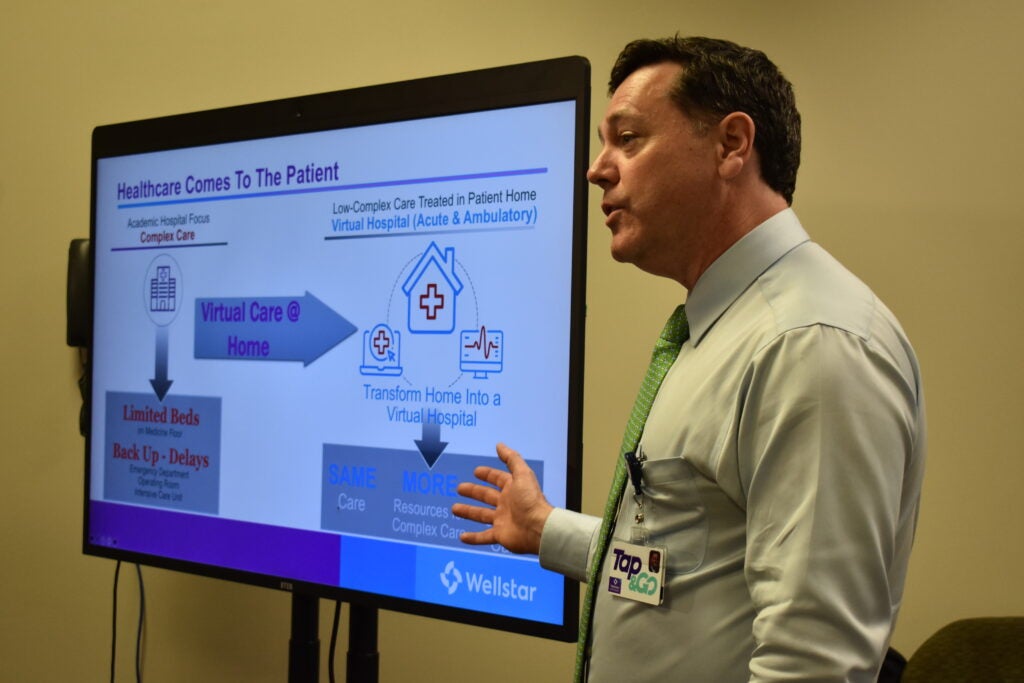
For those concerned about older adults navigating technology at home, Lyon said patients of all ages will benefit from advancing telehealth programs.
“Older patients are actually the ones that benefit the most from this,” he said. “Our program we take everything into their home, so we don’t rely on their knowledge or owned devices, and we don’t even need their WI-FI. We set it all up.”
Since older patients are also more prone to health-affecting stress, also known as delirium, Lyon also said their conditions can actually show more stability receiving care at home, because they will not suffer from confusion or extra distress.
“We are proud of this next phase for our mission, and we expect this expansion of the MCG Center for Telehealth to have a significant impact to improve healthcare outcomes throughout the state for many years to come,” Keel said.
With MCG being the first hospital in Georgia to offer telehealth programs, Lyon said he is confident that virtual and remote care is the leading way to advance “21st century medicine,” and ultimately the future of all hospitals in the nation.
“I am both excited and optimistic to see what kind of revolutionary work comes as a product of this great program and how telehealth continues to advance and improve the lives of both patient and provider,” said Rep. Carter.

